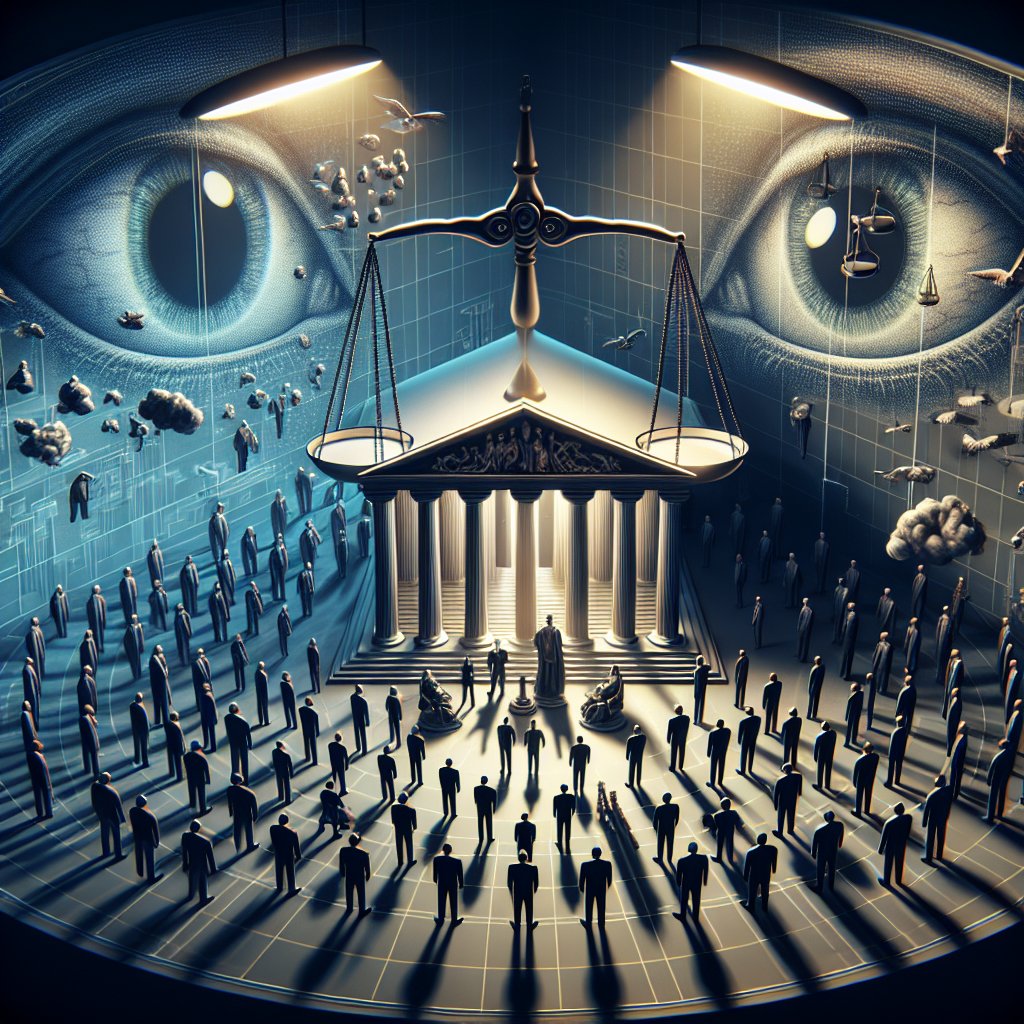Image created by AI
Tensions Rise Over JSC's Non-Suspension Decision Amidst Mbenenge's Controversy
The Judicial Service Commission's (JSC) reluctance to recommend the suspension of Eastern Cape Judge President Selby Mbenenge has stirred significant discomfort in the legal fraternity of South Africa. The debate intensified following the revelation that Mbenenge laid a charge of crimen injuria against the aspirant lawyer Andiswa Mengo, who accused him of sexual harassment. This development has exacerbated concerns about the impartiality of the judiciary and the treatment of serious allegations within its ranks.
The controversy picks at the delicate threads of judicial integrity, particularly when powerful figures in the legal system are implicated. The situation begs the question of whether the JSC is adhering to a consistent standard of ethics and accountability, especially given their past record of suspending judges facing similar serious charges.
In the eye of the storm is the respected Judge President Mbenenge, whose reputation has seemingly influenced the JSC's decision-making process. Commissioners seem to have placed significant weight on Mbenenge's standing as a judge president and his stature in the community and church — factors that should ostensibly be irrelevant when considering allegations of misconduct.
Highlighting an apparent contradiction, the JSC's decision on Mbenenge contrasts starkly with past instances where judges accused of gross misconduct were routinely suspended pending the results of a judicial conduct tribunal investigation. Examples include judges such as John Hlophe, Tintswalo Nana Makhubele, and Mushtak Parker, reflecting a more stringent approach than that currently being applied to Mbenenge.
Another element contributing to the unease is that at the time of the decision, Mbenenge was reportedly on special leave — a status also held by judges Maumela and Parker when they were suspended. Hence, the precedent exists for suspension irrespective of the leave status of accused judges — a precedent the JSC appears to have sidestepped in Mbenenge’s case.
The issue is not merely procedural but carries a disturbing message about the perceived immunity of those in power. There is growing apprehension that the JSC’s handling of the matter sends a discouraging signal to victims of sexual harassment, potentially deterring them from coming forward out of fear that their claims will not be taken seriously.
Moreover, the integrity of the JSC’s decision-making process has been called into question owing to the potential conflict of interest of JSC spokesman Mvuzo Notyesi, who has a longstanding professional relationship with Mbenenge. Notyesi's impartiality has come under scrutiny given his past collaborations with Mbenenge in legal cases, further clouding the transparency of the commission’s operations.
The need for an institutional response to sexual harassment within the judiciary is clear. JSC commissioners themselves have acknowledged the lack of a formal policy on addressing sexual harassment, an issue brought into sharp relief during the interviews for the chief justice position. While a committee has been established to draft an anti-sexual harassment policy, the urgency for such guidelines cannot be understated, considering the current debacle.
In sum, the unfolding events surrounding Judge President Mbenenge and the JSC present a complex ethical dilemma. As the judiciary grapples with these questions, the eyes of the nation — particularly those of legal professionals and justice advocates — remain intently focused on how these matters resolve, with the integrity of South Africa's judicial system hanging in the balance.










